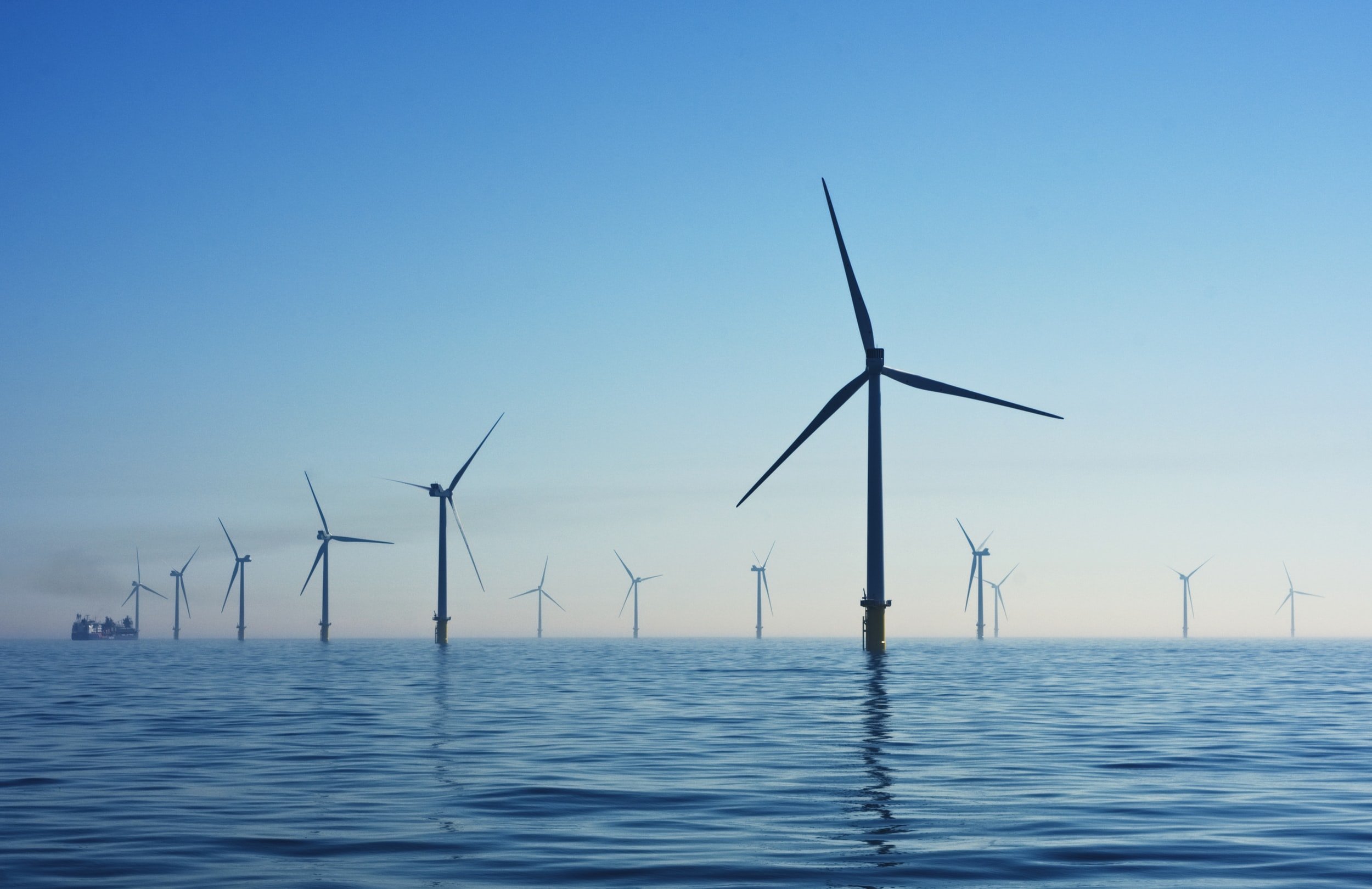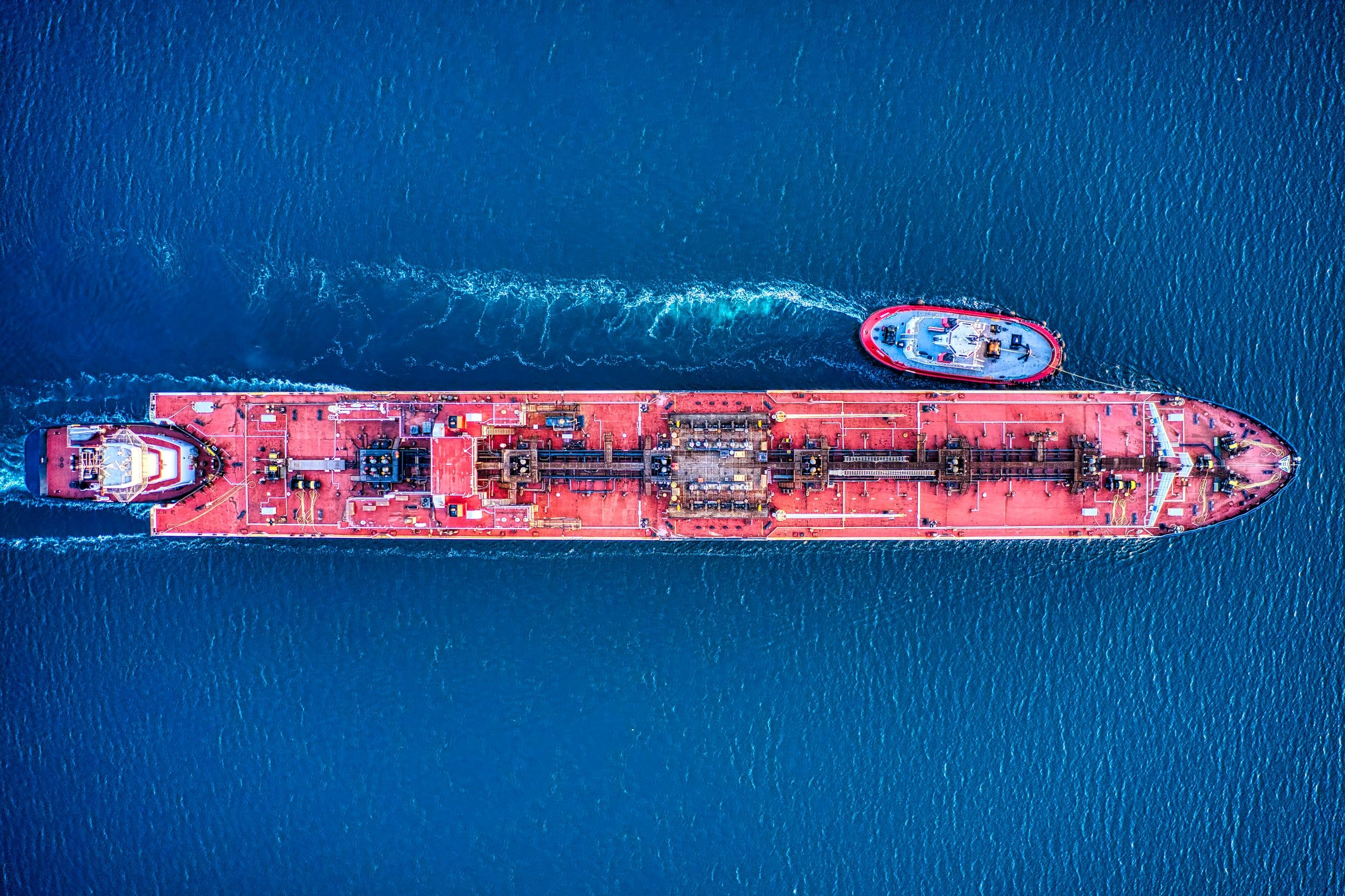
About the campaign
Keep Ireland LNG Free
LNG stands for Liquefied Natural Gas. It involves cooling gas to extremely low temperatures (-160°C) so that it liquifies, for easier transport overseas to countries with LNG import terminals. Both the leakage of this gas during production and the burning of this gas for energy are extremely damaging to our atmosphere.
The fossil fuel industry is trying to push gas as a clean fossil fuel, but the science doesn’t lie. Methane, leaked throughout the LNG supply chain, is a potent greenhouse gas with at least 86 times the global warming potential of carbon dioxide over a 20-year period.
There are 4 LNG terminals proposed for Ireland (Shannon, Cork, Mayo and Louth). These terminals pose a huge risk to Ireland’s climate targets and would lock us into fossil fuel use for a further 30 years. This would be disastrous at a time when we urgently need to transition to renewables.
The only way to ensure these terminals are not constructed is a legislative ban on LNG infrastructure in Ireland.
This is a campaign run by grassroots volunteers. We wrote the Bill and it was launched on the 18th February 2022. We now need as much public and political support as possible to make sure it gets through the Dáil and Seanad to become law.
If you’re a TD please sign our pledge to support the campaign to prevent LNG infrastructure in Ireland here and if you’re a member of the public please sign our petition here.
This is the biggest climate battle in Ireland right now – and we must win it!
NHNA LNG Briefing (Scroll on above image to read)
FAQs
-
Liquefied natural gas is fossil gas which has been turned into a liquid so that it can be transported around the world on tankers. Four LNG import terminals have been proposed for the Republic of Ireland in Kerry, Cork, Mayo and Louth. One of these is Shannon LNG in Co. Kerry. As of the beginning of 2023, an application to build the Shannon LNG terminal in Kerry is currently being considered.
-
The fossil fuel industry often tries to market gas as a “green” or “transition” fuel, as it burns “cleaner” (produces less carbon dioxide on combustion than coal or oil).
But in fact, LNG is devastating for the climate because it has high rates of methane leakage. Methane is a greenhouse gas with a global warming potential at least 86 times higher than carbon dioxide over a 20 year period. This makes LNG 20% more damaging to the climate than conventional pipeline gas, and ultimately it has no climate benefit over coal or oil. -
LNG as a source of energy is not cost effective and would be economically short-sighted. The fossil fuel industry and LNG proponents frequently rely on fear mongering about blackouts and energy security to support the construction of LNG terminals.
Yet, projections show that existing gas infrastructure is more than sufficient for energy supply, even when Ireland’s increasing energy demand is accounted for. Ireland can also access short-distance gas from the UK and the EU, whose infrastructure for importing gas already exceeds current actual imports by 200%. So, LNG and accompanying terminals to import it are simply not needed for Ireland’s energy supply.LNG terminals would also be a significant, costly investment in a fuel we are planning on rapidly phasing out. Additionally, LNG projects are often unsuccessful, with 61% of projects being “cancelled or abandoned”. Renewables are already cheaper than fossil fuels. Furthermore, investment in fossil fuel infrastructure risks drawing resources from renewable investment.
So if built, the investment in LNG may not only turn out to be a waste of resources, it may actually threaten much needed future investment in renewables by flooding the market with harmful fossil gas. -
Energy security in Ireland does not require huge fossil fuel import terminals. Multiple studies, including those by Gas Networks Ireland and EirGrid, have found existing gas infrastructure to be capable of meeting future demand, even in the event of extreme supply disruption.
LNG as a source of energy is not cost-effective and poses an economic risk, as 61% of LNG projects are cancelled or abandoned.
LNG terminals planned for Ireland will be owned by private companies that have no obligation to sell us their fuel at below market prices. Increasing our nation’s reliance on LNG fossil fuel energy will further expose us to energy insecurity and price rises. While the 2022 energy security review report opposed commercial LNG, we strongly advocate going further and banning all LNG.
The most secure source of energy for the future is indigenous renewables supported by storage. There is no energy security without energy sustainability - energy security risks are far outweighed by the risks of climate disruption.
-
Gas is described as a 'transition' fuel because it emits less carbon dioxide than coal or oil when it’s burned.
However, unlike coal, natural gas leaks throughout the supply chain and emits high levels of methane into the atmosphere.
Methane is a potent greenhouse gas with at least 86 times the global warming potential of carbon dioxide over a 20-year period.
The extent of methane leakage means conventional gas has no climate benefit over coal or oil.
Further, LNG is estimated to be 20% more emissions intensive than short-distance gas on a full life-cycle basis. This is due to methane leakage (as well as the additional energy required) in the process of liquefying, transporting and regasifying the LNG.
-
To be sure of stopping fossil fuel companies from building LNG terminals in Ireland we need to ban LNG infrastructure.
Despite the government’s policy statement against importing fracked gas, a US company, New Fortress Energy, is currently applying for planning permission to build a huge LNG complex in Co. Kerry (Shannon LNG) on the highly dubious grounds that the LNG may not be fracked. The 2022 energy security review report confirmed that the government itself is considering state-owned LNG.
As Leo Varadkar recently confirmed in the Dáil, at the moment there is nothing the government can do to stop a private company like this bringing LNG to Ireland. We need a legislative ban on LNG to ensure we don’t get locked in to fossil fuel infrastructure for the next 30-40 years.

Bill Stages
We are here >
01 — Our Bill is Introduced
The Bill was launched at the Dáil on 18th February 2022 by Green Party TD Neasa Hourigan and grassroots activists from Not Here, Not Anywhere along with cross-party support from a number of other TDs and Senators.
02 — Our Bill is drawn
Private Members’ Bills such as this get drawn from a pool. Once drawn it will need to go through the following stages:
Second Stage debate
Third/Committee Stage examination
Fourth/Report Stage review
Fifth Stage - voting takes place
03 — Our Bill is voted on
Should a majority of the Dáil vote in favour of the Bill it will then be brought to the Seanad where Stages 2 - 5 will be repeated.
04 — President signs into Law
Should the Bill be passed by the Seanad then it will be enacted. This is where the President signs the Bill into law, it becomes an Act and is added to the Statute Book.
This is the ultimate goal of this campaign and would protect Ireland from the damage posed by LNG terminals.

LNG Planned for Ireland
Fossil fuel companies are currently planning to build four climate-wrecking LNG terminals in the Republic of Ireland. Proposals have been made for Kerry, Cork, Mayo and Louth.
Shannon LNG
Location:
Ballylongford,
Co. Kerry
Companies Involved:
Shannon LNG Limited
Hess LNG (Parent)
New Fortress Energy (Supplier)
Predator LNG Cork
Location:
Inch,
Co. Cork
Companies Involved:
Predator Oil and Gas Holdings Plc
Theseus Ltd (Partner)
Pilot LNG, Port of Cork
Location:
Port of Cork,
Co. Cork
Companies Involved:
Pilot LNG
Predator LNG Mayo
Location:
Corrib,
Co. Mayo
Companies Involved:
Predator Oil and Gas Holdings Plc
Theseus Ltd (Partner)
Predator LNG Louth
Location:
Drogheda,
Co. Louth
Companies Involved:
Predator Oil and Gas Holdings Plc
Theseus Ltd (Partner)

Help us win
We can’t pass this bill alone. If you’re a politician pledge your support and if you’re a concerned individual sign our petition.
